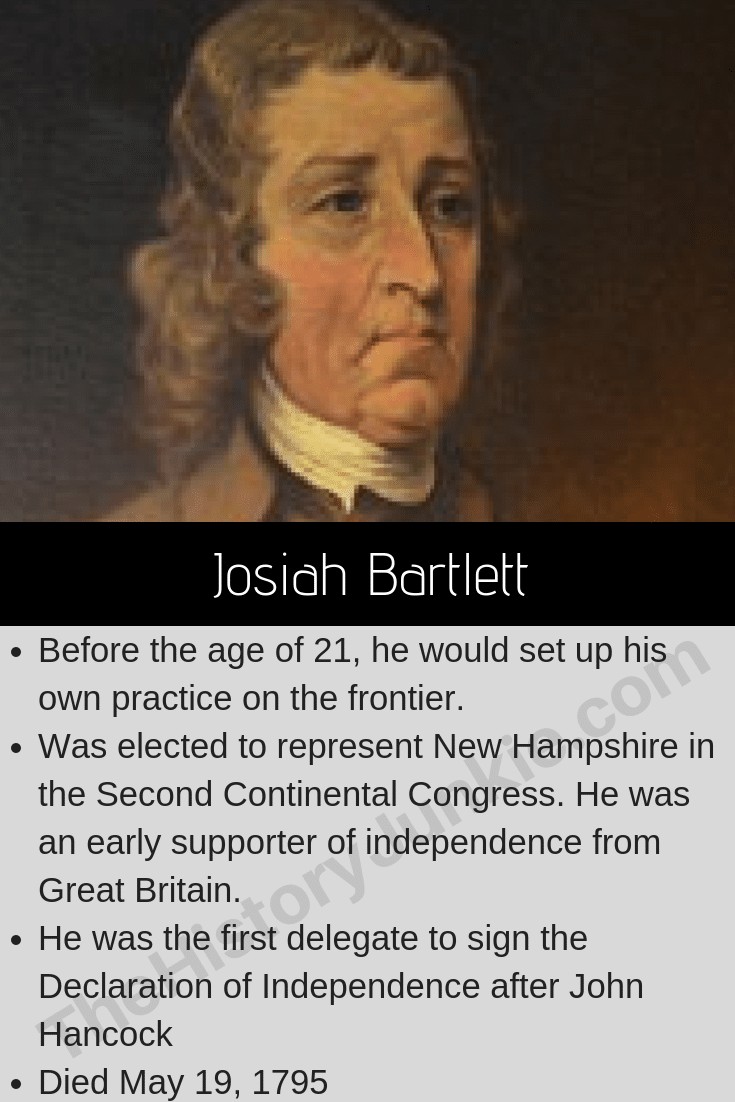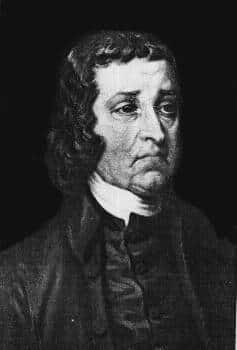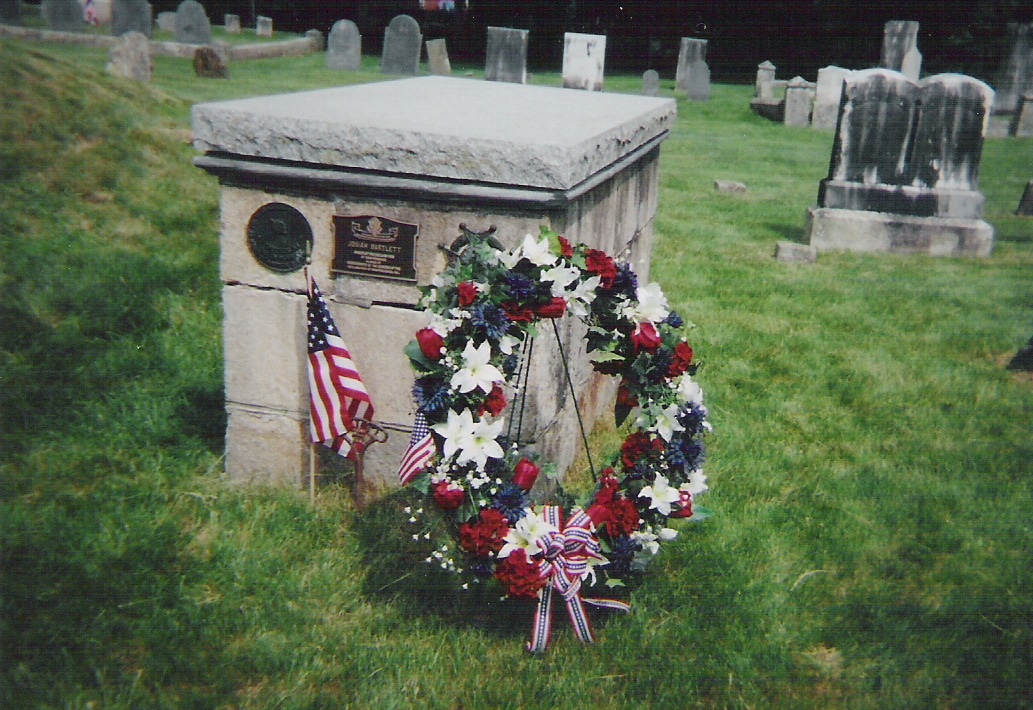Bartlett was born in Amesbury, Massachusetts, and was well-educated. At a young age, he had a solid foundation in Latin and knew quite a bit of Greek.

He studied medicine under Dr. Ordway, and before the age of 21, he moved to the frontier town of Kingston, New Hampshire, and set up his own practice.
When he was 24, he married his cousin Mary Bartlett. The two would have 12 children together.
Three of his sons and seven of his grandsons would follow him into the field of medicine.
Josiah Bartlett Early Career

Bartlett was selected as a delegate from New Hampshire in 1775 and attended that session as well as the meetings in 1776. Most of the work of the Second Continental Congress was carried out in committees.
The most important of these required a delegate from each colony/state, which meant that Bartlett served on all of them, including those of Safety, Secrecy, Munitions, Marine, and Civil Government.
William Whipple and Matthew Thornton were added to the delegation in Philadelphia after Bartlett continually requested that they be enlisted.
American Revolution
When the Congress brought the issue of declaration up to the Continental Congress, Bartlett was the first to say yes to the motion. He was also the first to sign the Declaration of Independence after John Hancock.
Josiah Bartlett retired from public service and would soon died on May 19, 1795. He was laid to rest next to his wife in Plains Cemetery in Kingston, New Hampshire.
Bartlett lived a full life and would discover Peruvian Bark that would alleviate the symptoms of throat distemper, which would prove useful during an outbreak in the 1730s. Throat distemper was fatal to many, especially the young.
Josiah Bartlett Legacy
Charles Goodrich had this to say of Josiah Bartlett in his book Lives of the Signers of the Declaration of Independence:
The repose of private life, however, which must have become eminently desirable to a man whose life had been past the toils and troubles of the revolution, was destined to be of short duration.
This eminent man and distinguished patriot closed his earthly career on the nineteenth day of May 1795, in the sixty-sixth year of his age.
To the sketches of the life of this distinguished man, little need be added, respecting his character. His patriotism was of a singularly elevated character, and the sacrifices which he made for the good of his country were such as few men are willing to make. He possessed a quick and penetrating mind, and, at the same time, he was distinguished for a sound and accurate judgment.
A scrupulous justice marked his dealings with all men, and he exhibited great fidelity in his engagements. Of his religious views, we are unable to speak with confidence, although there is some reason to believe that his principles were less strict than pertained to the puritans of the day.
He rose to office and was recommended to the confidence of his fellow citizens, not less by the general probity of his character than the force of his genius.
Unlike many others, he had no family or party connections to raise him to influence in society, but standing on his own merits, he passed through a succession of offices which he sustained with uncommon honour to himself and the duties of which he discharged not only to the satisfaction of his fellow citizens. but with the highest benefit to his country.

